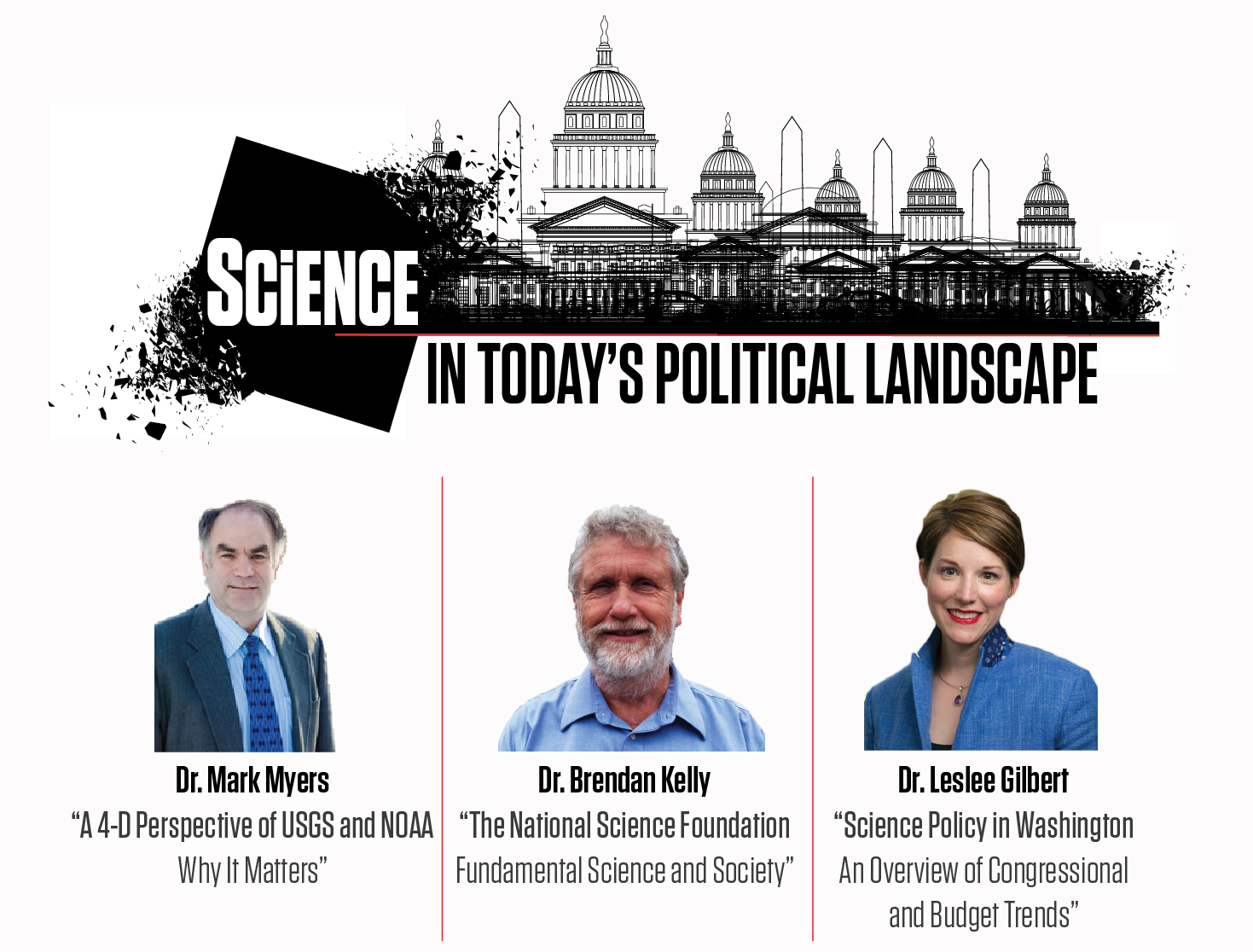Experts To Offer Insights On “Advancing Science In Today’s Political Landscape” At Texas A&M Feb. 22
The College of Geosciences is hosting the seminar featuring three science and policy experts.
Feb 16, 2018

Thursday Feb. 22, the Texas A&M University research community is invited to a seminar on “Advancing Science in Today’s Political Landscape.” The event will be held in Rudder Tower 401, from 8:50 a.m. to 12:00 p.m.
The College of Geosciences at Texas A&M is hosting the event as part of its Early Career Faculty Development Program, and the seminar is also open to faculty and students from across campus.
“To sustain impactful scientific research in the college and at Texas A&M, it’s important to equip our junior faculty members with the knowledge and tools needed to effectively engage with governmental research and funding agencies,” said Dr. Jack Baldauf, executive associate dean and associate dean for research in the College of Geosciences.
The seminar speakers include:
- Mark Myers, a geologist who has been engaged in research, resource management and policy for more than three decades. Myers holds BS, MS, and Ph.D. degrees in geology and has served in senior leadership positions with the State of Alaska, University of Alaska and the U.S. Department of Interior. In 2016 he retired as Commissioner of Natural Resources for the State of Alaska where he managed the state’s natural resources including its land, water, minerals, oil and gas, agriculture, state parks, and forests. Prior positions have included Vice Chancellor for Research at the University of Alaska Fairbanks, the Director of the U.S. Geological Survey (the nation’s largest water, earth and biological science and civilian mapping agency), State Geologist and State Director of Oil and Gas of Alaska. Currently, he is the principal of Myenergies, a consulting business with expertise in research review and evaluation, natural resource management, climate change and energy and Executive Vice President for Applied Science and Research Strategy for Revelant, a small technology company.
- Brendan P. Kelly, the Executive Director of the Study of Environmental Arctic Change and Professor of Marine Biology at the International Arctic Research Center, University of Alaska Fairbanks. Kelly also serves as a Senior Fellow with the Center for the Blue Economy at the Middlebury Institute of International Studies at Monterey. A marine ecologist with a focus on sea ice environments, he has participated in and led collaborative research in the North Pacific Ocean, Arctic Ocean, Sea of Okhotsk, Baltic Sea, and Antarctica. He has served as Deputy Director for Arctic Sciences, National Science Foundation; Assistant Director for Polar Science in the White House Office of Science and Technology Policy; and as a science adviser to indigenous organizations in Alaska. Currently, he serves on the National Academy of Sciences’ Polar Research Board and as a member of the Positions Statement Committee of the American Geophysical Union.
- Leslee Gilbert, a Vice President at Van Scoyoc Associates with an extensive background in higher education, research, technology development and politics. Gilbert has nearly 15 years of hands-on experience in the Washington policy-making process, and over 20 years of experience working in and with institutions of higher education. At VSA, Dr. Gilbert has developed a practice that focuses on research, development and competitiveness in fields such as aerospace, cybersecurity, information technology, basic and applied science, environmental policy, and energy. Before joining VSA, she was Majority Staff Director and Counsel of the House of Representatives’ Science, Space, and Technology Committee, the primary committee for overseeing research and development in agencies such as NSF, NASA, NIST, NOAA, EPA, and the Departments of Energy, Homeland Security, and Transportation. She played a central role in developing and implementing Federal science, technology, and civil space policy, including NASA reauthorization bills, the Energy Independence and Security Act, and America COMPETES.
Event admission is free, and organizers recommend arriving early because space is limited.
